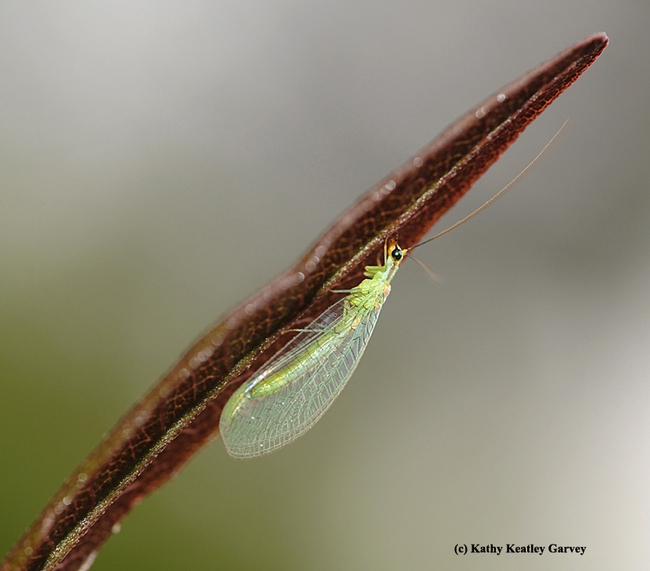So you want to create a sustainable landscape in your backyard. You want to create a living landscape that attracts bees, butterflies and birds. You want plenty of pollinators and a plethora of beneficial insects.
How do you do it?
The California Center for Urban Horticulture (CCUH), based at the University of California, Davis, will clue you in at its workshop, "Your Sustainable Backyard: Creating a Living Landscape Workshop," on Saturday, March 28 on the UC Davis campus.
The event, set from 8 a.m. to 3 p.m. (come for breakfast at 7:30!), will take place in Room 180 of Medical Sciences Building C in the School of Medicine complex. Registration is now underway and those planning to attend should reserve their space early.
Insect and wildlife habitat is growing scarce in the typical backyard, said Anne Schellman, program manager of CCHU. "Making your garden into a living landscape is an important way to create places of refuge for wildlife while adding biological diversity to your city. The goal of the sustainable gardener is to reduce pesticide use, select plants carefully and provide food and shelter for wild creatures, which helps tie our gardens to the larger landscape around us."
Workshop topics (the speakers and their titles will be announced soon) are:
- Plants that provide refugia for wildlife (refugia is defined as "an area where special environmental circumstances have enabled a species or a community of species to survive after extinction in surrounding areas")
- Not-so-common pollinators
- Cool tools to control garden pests
- Green roof applications
- Attracting birds to your backyard
The cost is $45, which includes parking, a light breakfast, lunch and a special tour of the Häagen-Dazs Honey Bee Haven, a half-acre bee friendly garden operated by the UC Davis Department of Entomology and Nematology on Bee Biology Road. It is located next to the Harry H. Laidlaw Jr. Honey Bee Research Facility, west of the central campus. Those attending will also have the opportunity to purchase bee condos or homes for leafcutter bees and blue orchard bees. They are blocks of wood drilled with specific-sized holes.
For more information on the workshop, access the CCUH website or contact Schellman at aschellman@ucdavis.edu or (530) 752-6642.
Attached Images:

